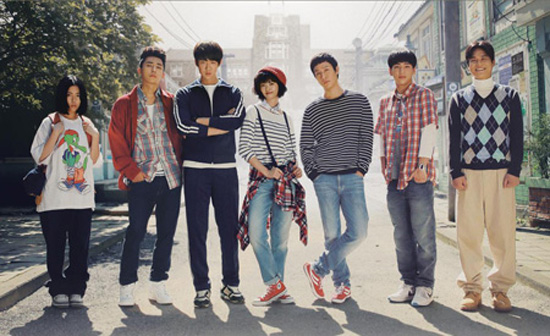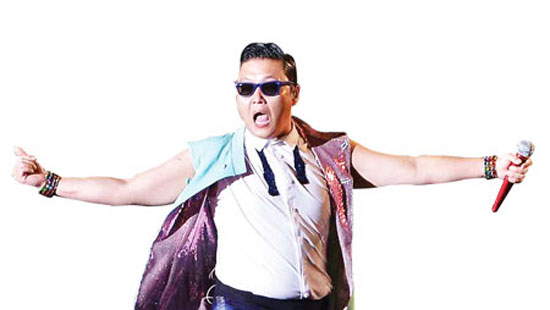- California Assembly OKs highest minimum wage in nation
- S. Korea unveils first graphic cigarette warnings
- US joins with South Korea, Japan in bid to deter North Korea
- LPGA golfer Chun In-gee finally back in action
- S. Korea won’t be top seed in final World Cup qualification round
- US men’s soccer misses 2nd straight Olympics
- US back on track in qualifying with 4-0 win over Guatemala
- High-intensity workout injuries spawn cottage industry
- CDC expands range of Zika mosquitoes into parts of Northeast
- Who knew? ‘The Walking Dead’ is helping families connect
R&B drops off K-pop radar

Underground R&B singer Shin Bo-kyung, better known as Boni, says K-pop’s rise has fueled the departure of underground musicians to the trendy music scene in an attempt to earn money and fame easily.
(Photography by Park Young-kyu)
This is the second in a three-part series about declining musical diversity in the K-pop scene. ㅡ ED.
By Park Si-soo
For Shin Bo-kyung, music is her life.
Born to a hair dresser mother, also a music buff, the 27-year-old spent much of her childhood listening to various kinds of music at her mom’s salon with a broken microphone in one hand.
Her inherent musical talent, especially in rhythm and blues (R&B), was recognized in 2006 by now-defunct duo band 015B, which set the stage for Shin to debut that year with the R&B song “Lost My Way for a Bit.” Having released a debut full-length album in 2010, she is currently studying postmodern music at Kyung Hee University.
In a recent interview with The Korea Times, the underground R&B soloist, better known by her stage name Boni, said her wish in life is to work and play with music rooted in the Western gospel tradition. But she said it’s becoming increasingly doubtful whether her wish will come true.

Boni checks her performance schedule during a festival for the U.S. Forces Korea in Seoul on Oct. 19.
“R&B musicians in Korea are quickly losing their ground. Simply put, Korean R&B is in the darkness,” she said at a recording studio near Hongik University in Seoul. “The crisis came with the rise of K-pop. Many talented musicians in R&B have converted to other media-hyped genres with which they expect to earn money and fame easily.”
She didn’t identify those she described as “defectors” and also didn’t additionally criticize them in respect of their choice. But she remained worried that the departure, if continued, will deal a critical blow to musical diversity within K-pop, which critics claim is already dominated by hook-heavy dance music or “idol music.”
A recent report by the National Assembly shows that K-pop is oversimplified as a genre.
Analyzing songs ranked on the Gaon Chart last year, the report said 82 percent of the tracks were “idol music,” which represents K-pop globally.
Contemporary pop music came next in portion with 8 percent, followed by original soundtracks with 5 percent, hip-hop with 1 percent, rock with 1 percent and folk music with 1 percent. R&B took less than 1 percent, according to the report. It said neither U.S. Billboard Chart nor European charts had a single genre taking up more than 50 percent of the chart.

Boni sings during a festival hosted by the U.S. Forces Korea, headquartered in Yongsan, Seoul, on Oct. 19.
What’s worrisome is that there are many critics who are reluctant to define idol music as a genre, citing a lack distinctive musical identity. They insist idol music is like a “spaghetti bowl” in which various music genres including dance, hip-hop, rap and R&B are all mixed up in one category.
“I’ve so far met several promoters who said they will help me join the mainstream music scene and make a lot of money on condition that I sing trendy music. But I rejected this,” Boni said. “I don’t regret the decision…because I like R&B. This is the music I’ve grown up with and that I will live with.”
Boni eyeing overseas markets
She is working to release her first all-English language album during the second half of next year at the earliest, in an ambitious move to expand her presence into overseas markets. Prior to this, she will release sample songs through YouTube, iTunes and other global music file sharing Websites such as Datpiff.com, in an attempt to monitor the responses of overseas listeners.
“I’ve received several messages (through Facebook or Twitter) from underground R&B musicians in the U.S. who sought to collaborate with me,” Boni said. “They contacted me after listening to my Korean songs through YouTube. I think this is a good sign.”
In fact, she found a bigger possibility of success in the U.S. with her performances for American troops here. Boni is one of the most sought-after Korean musicians for them, according to her management agency chief Yeom Jung-bong.
“I took to the stage for U.S. soldiers for the first time last year at the invitation of a U.S. Army official, who was a big fan of my music, especially ‘ResQ Me,’” she said, referring to the lead track of her 2010 debut album.
“Since then I was invited several more times, including to a giant festival held in Daegu on July 4th to celebrate U.S. Independence Day. All the performances I held were really successful.”
Asked if there is a recipe for success, she answered, “I don’t know why (I’m popular among U.S. troops)” with a bashful smile. “Perhaps it’s because I sing in English… Actually I was told that my English accent and pronunciation are very natural.”
Boni said “ResQ Me” is the most loved of her songs among American soldiers, adding that it will be on her inaugural album with all songs sung in English.
She said her wish for her career is to have an opportunity to work with renowned U.S. R&B production duo, the Underdogs.
“They are awesome. I love them,” she said. “I really want to know how they produce music in such an awesome manner — not only for me but also the Korean R&B scene as a whole.”










![일본 사도광산 [서경덕 교수 제공. 재판매 및 DB 금지]](http://www.koreatimesus.com/wp-content/uploads/2024/07/PYH2024072610800050400_P4-copy-120x134.jpg)


